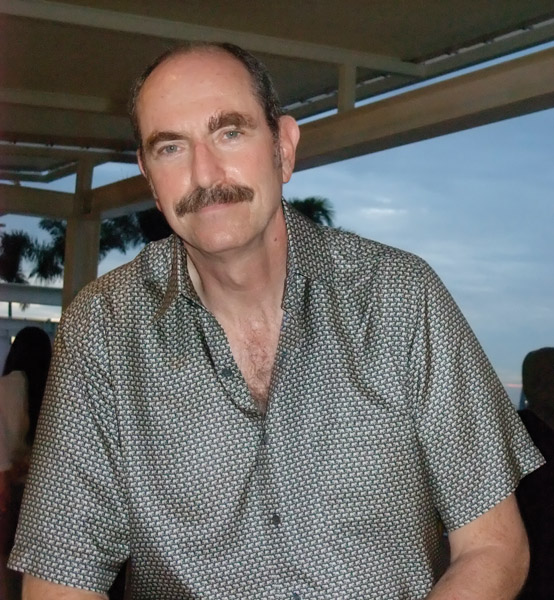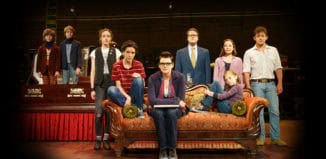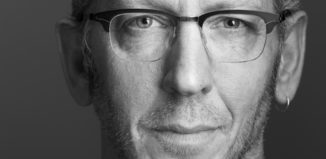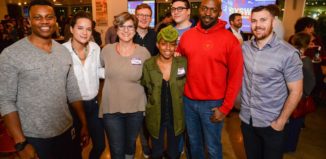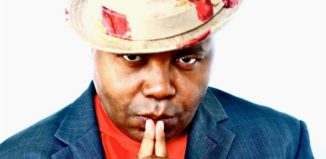Can gayness be taught? In his new book How to Be Gay (Harvard University Press), David Halperin—A W. H. Auden Distinguished Professor of the History and Theory of Sexuality at the University of Michigan—says the answer is yes, arguing that being a gay male is as much a cultural practice as a sexual one.
It sounds provocative, but Halperin is no stranger to controversy. When he debuted an English-department course titled “How to Be Gay” way back in 2000, Republicans in the Michigan state legislature sponsored an amendment to redistribute 10 percent of UM’s annual appropriations. It failed, however, and Halperin spent the next decade searching for the murky source of gay identity, using campy signposts like Lady Gaga and Joan Crawford as his guide. We chatted with Halperin about his latest work, the drawbacks of normalizing homosexuality and why so many straight people love gay culture.
You spend a sizable chunk of your 549-page book deconstructing a single scene from Mildred Pierce. Can you explain the film’s significance for gay culture?
That’s exactly what I can’t do in a few words. The best I can say is that a lot of gay cultural wisdom consists of taking what mainstream culture regards as tragic and turning it into melodrama and claiming it as our own.
 Your book grew out of the controversial course you taught at the University of Michigan. Tell us more about the book’s origins.
Your book grew out of the controversial course you taught at the University of Michigan. Tell us more about the book’s origins.
The reason I wanted to study the topic of this book is that I keep being told all my life that I’m terrible at being gay, that I have no idea how to be gay, and I’m a miserable failure as a gay man. What they mean is that I have no cultural understanding, and they’re not entirely wrong.
Do gay men and women find themselves at a disadvantage when they don’t gravitate towards gay culture?
I don’t know about that, but I think one of the things I was interested in is the sense that this is something that you acquire gradually over time. That it’s not something you’re born into, but that, like any kind of culture—whether it’s a musical culture or an athletic culture—you get gradually involved in it and you come to acquire it from others.
It sounds like you’re suggesting gay culture can be imprinted on someone who isn’t gay, which would sound fairly ridiculous to anyone not named Pat Robertson.
Well, in a way I am saying it. But I’m not saying that gay people recruit straight people to the gay lifestyle. I’m not saying that people become gay because they’re taught to be gay by others. I’m not talking about what causes homosexuality. I’m talking about how people who already are homosexual acquire a collective sense of themselves as belonging to a common culture, and I do think that that process can be transmitted even to straight people.
Hence the controversy.
One of the reasons this book creates controversy is that we are living in a moment when there is a great deal of triumphalism about the progress of gay rights. What my book suggests is that, yes, I’m obviously in favor of the progress of gay rights, but in some ways gay people will always be queer and always at some distance from the heterosexual norm and that that’s a good thing.
Talk about the campaign for marriage rights. Do you view it as a concession to straight culture?
I’m in favor of the right of gay people to be married. What I’m interested in is the way that the gay marriage movement often does not present marriage equality as a matter of human rights or distributive justice or the leveling of material differences between gay and straight people or the end of homophobia or discrimination, but rather as a symbol of normality, of assimilation and social integration to show that gay people are the same as everybody else. It’s not marriage itself that is the issue for me, it’s the way some in the gay marriage movement use marriage to try to present gay people as—not just normal—but even boring.
Can you give us an example?
Well, one sign that gay people are trying to beat straight people in the normality sweepstakes is the new tendency of gay people to take up archaic forms of heterosexual culture that many heterosexuals themselves have abandoned. I mean, how many straight people who get married nowadays insist on publishing their photos and their wedding plans in the society pages of their local newspapers? It’s nice to see photos of same-sex couples there, but sometimes you have to wonder about this gay rush to embrace outdated heterosexual forms.
Is your fear that banality will gradually erode gay cultural identity?
No, I just think that it denies some of the genius of gay culture.
You argue that gay culture has value for hetero-normative culture. What is it?
I even say toward the end of the book that it may be straight people who appreciate gay culture more than gay people do nowadays, since a lot of gay people seem determined to flee from gay culture at the moment. Basically, one of the things that gay culture does is perform a kind of anthropological fieldwork on the straight world that it inhabits. I mean gay people live in a state of diaspora, basically. And in order to function and to survive in this world that is not their own, they have to study it very carefully and one of the things that we learn is a lot about how straight people perform straightness. Stuff straight people take for granted. And so when gay male culture represents all that to straight people, it allows straight people to acquire a certain kind of heightened consciousness of the formal features of their own world.
Where does the momentum within the gay community— towards assimilation or against it—reside right now?
Oh, the momentum resides with the trend to assimilation, partly because of the very important symbol of gay marriage, which is a valid cause and which not only has mobilized a lot of gay people to get behind it, but also represents a point of convergence for a lot of younger straight and gay people, all of whom feel strongly that gay marriage is one of the important causes of our time.
This book is the compilation of a dozen years’ work— what’s next for you?
I’m not sure. I think a book about queer love.


















